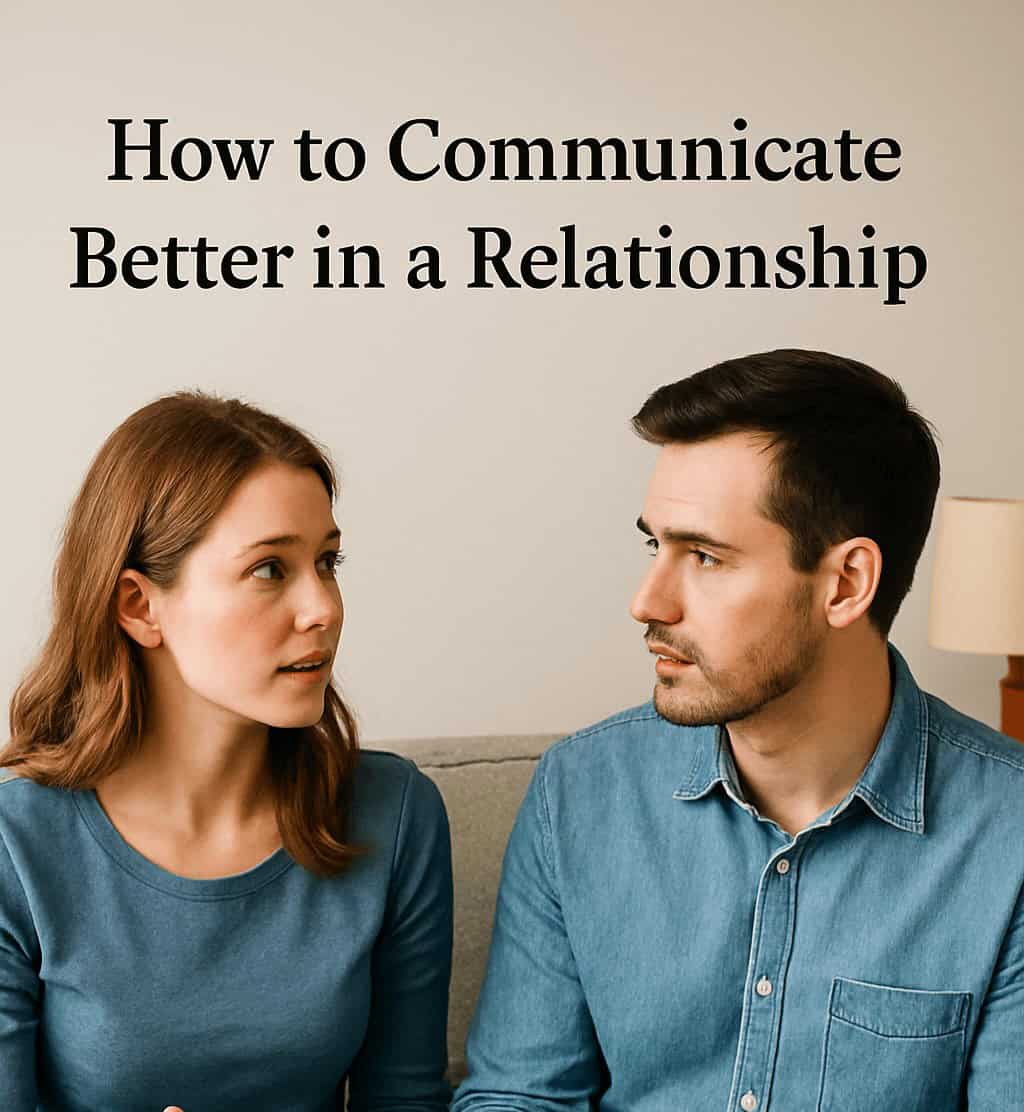
Communication in relationships is one of the most important keys to long-term success. Still, many couples struggle to express themselves clearly or listen effectively. Improving communication takes practice, effort, and patience. However, the rewards are well worth it. Healthy communication builds trust, connection, and emotional safety over time.
Why Relationship Communication Matters
All healthy relationships are built on communication. Without it, assumptions take over and misunderstandings grow. Couples may drift apart or feel disconnected. Regular, open conversation helps each person feel heard and valued. When partners feel safe sharing their thoughts, deeper intimacy forms.
Sometimes, a lack of communication leads to conflict. More often, it results in silence. Even small conversations help reinforce closeness. Whether you're newly dating or married for years, communication affects every area of your bond.
1. Practice Active Listening
Active listening is more than hearing words. It means focusing completely on your partner. Put away distractions like phones or TV. Make eye contact. Nod occasionally. Use brief verbal affirmations like "I understand" or "Go on."
Avoid interrupting, even if you disagree. Wait until they finish. Then reflect back what they said using your own words. This shows empathy and keeps you both on the same page.
2. Speak from "I" Statements
Using “I” instead of “You” reduces defensiveness. Say, "I feel frustrated when plans change suddenly" rather than "You never stick to the plan." "I" statements help your partner see how their actions affect you. They also prevent blame and encourage honest feedback.
Use calm, nonjudgmental words. Stay respectful, especially when emotions run high. Remember, your goal is connection, not control.
3. Don’t Assume—Ask
Even long-term partners make incorrect assumptions. Clarify meaning before reacting. Ask questions like, "Did you mean it this way?" or "Can you tell me more about that?"
Assumptions create tension. Questions build understanding. The more curious you are, the more deeply you’ll understand each other.
4. Set Time for Check-Ins
In busy relationships, important talks often get postponed. Schedule regular check-ins to discuss feelings, plans, or concerns. This prevents emotional build-up and avoids passive aggression.
Weekly or biweekly check-ins can strengthen your bond. Use this time to share what’s working and what’s not. Choose a calm, neutral space without distractions.
5. Pay Attention to Nonverbal Cues
Body language says a lot. Crossed arms, looking away, or sighing can communicate frustration even without words. Facial expressions and tone matter just as much as speech.
If your partner looks tense or distant, ask if they feel okay. Match your body language with your words. Stay open and engaged.
6. Don’t Avoid Difficult Conversations
It’s tempting to avoid tough topics. But conflict doesn’t always mean something is wrong. In fact, open disagreement shows honesty and strength in a relationship.
Approach sensitive topics with care. Use facts instead of accusations. Listen first, then share your perspective. If things escalate, take a break and return when emotions settle.
7. Know When to Seek Support
If communication struggles keep repeating, it may help to talk with a licensed therapist. A professional can guide couples through challenging topics and teach new communication tools.
At Greene Psychology Group, our licensed therapists offer relationship counseling in Raleigh and through telehealth. Whether you’re facing recurring arguments or just want to grow closer, we can help.
Frequently Asked Questions (FAQs)
Q1: What are the biggest communication mistakes in relationships?
A1: Common mistakes include interrupting, using blame-based language, and avoiding difficult topics. Not listening actively is also a major issue.
Q2: How can I tell if we’re not communicating well?
A2: Warning signs include frequent misunderstandings, feeling unheard, or regular arguments that go unresolved.
Q3: Can therapy help us communicate better?
A3: Yes. A trained therapist can teach skills like active listening, managing emotions, and resolving conflict in a healthy way.
Q4: How often should couples talk about feelings?
A4: Regular communication helps avoid emotional distance. Even short daily check-ins help. Weekly deeper conversations are also valuable.
Q5: What if one partner doesn’t want to talk?
A5: Start with gentle questions and avoid pressure. Suggest counseling as a safe space to open up. Patience and empathy are key.
